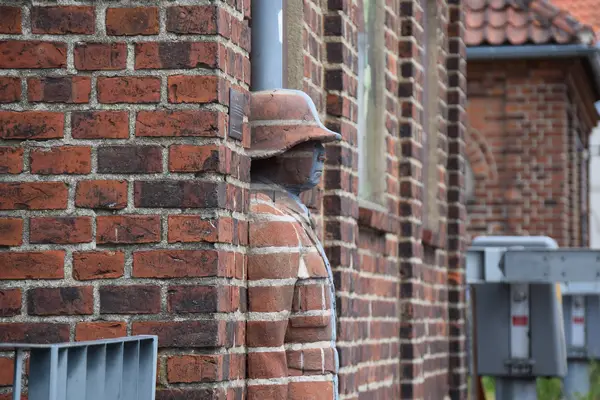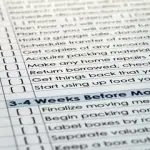
You may be buying a house as a first time buyer or as person who’s already been a homeowner. You maybe thinking about buying a house without a survey and wondering if house surveys are a waste of money.
So is there ever a time it’s recommended buying a house without a survey? If you are considering buying a house without a survey because you think house surveys are a waste of money, think again as a small investment in a house survey can save thousands in unexpected costs. Not having a house survey when buying a house to save money is a false economy.
Please read on to find out how there’s almost a 1 in 4 chance your house will need expensive building works after you move in.
But also, please also read this article to discover how you could save over £70,000 on your next mortgage if you sell your house and rent before buying again. Even I was amazed when I did the calculations!
Just in case you are considering buying a house without survey
You might be considering buying a house without survey. This could be because you are worried about the cost or perhaps cannot afford it. But consider what the cost might be for the of repair for a defect such as subsidence. If you can’t afford a survey, will you be able to afford any surprise repairs?
You might be worried about paying for a survey which may become an abortive cost. But if this house survey were to uncover any major fault or defect, it might have just saved you much more than the cost of the survey!
You may have bought a house before and found nothing wrong. But that doesn’t mean your next house will be the same.
What are the alternatives to having a house survey if you think they are a waste of money?
If you really don’t like the idea of spending out on a survey, what are the alternatives?
- Pay for individual specialists. The main problems that cost the most include subsidence, damp and roof problems. Which means you could pay for individual specialists to check each of the aspects of the property. Often times a surveyor will recommend you pay for a specialist, so you could go straight to this in the first place. However, bear in mind each of these checks will mean a separate appointment for the seller to attend at their home. Plus each specialist will charge a fee too.
- Ask a builder to survey the house. When my wife and I purchased our current home I asked my builder/developer friend to check it over. Plus I have good experience in buying property too. So I didn’t have a survey done in addition to the mortgage valuation survey. Interestingly though, around 6-12 months after moving in, one of the high pressure pipes burst under the concrete floor. The insurance claim for this ended up being £50,000. This type of problem would not have been picked up by a surveyor, but the moral of the story is to have home insurance!
- Learn the skills yourself. A good tip is to ask to attend the survey with the surveyor. Not something always welcomed by surveyors. But I did this on a number of properties I intended to buy at auction to learn what to look for. But you need to make sure you know what you are looking for. For example, what do cracks in walk mean? Becoming a DIY survey is not something you can learn quickly, as RICS building surveyors have to qualify to be a recognised surveyor.
Can you buy a house without a survey?
You can buy a house without a survey if you are buying with your own cash. But if you are buying with a mortgage, the mortgage lender will insist on a basic valuation survey which will confirm the house is at least worth what you are paying for it.
But if you are considering buying a house without a survey to save money, your short term saving may cost in the long term.
You may buy a house and not have a survey, and somehow a major problem the house has doesn’t come to light during your ownership. However, when you come to sell, this major problem may get picked up by the buyers as they decide to have a building survey done.
This problem may cost you the sale or will mean you lose the cost of its repair on the sale price. Either way you will lose out.
What percentage of homebuyers have a house survey?
According to Churchill Insurance over 7 million homeowners didn’t have a survey done before they bought their property. But in the same survey by Churchill, 56% of those that had major building works said that if they knew this in advance it would have influenced their decision to buy the property.
How many home owners paid for unexpected building work after moving in?
According to the same survey by Churchill Insurance, around 13 million homeowners needed unexpected building work completed on their house after they moved in. This happened within 12 months from moving in! Of these home owners nearly 1 in 10 needed major works completed.
Plus in the same article, nearly 25% of surveyors have had clients who needed expensive building works done to their property soon after moving in. These building works would have come to light in a building survey. The type of major building work required included subsidence, roof repairs, dry rot, damp and heating problems.
What are the top problems detected by a building survey that make them worth it?
The top three problems which can be picked up by a building survey include:
- Damp problems. The question is, do you know how to spot damp problems and are you aware of the cost to fix this? You might be interested to read this article on should I buy a house that has damp.
- Problems with the roof. Would you know what to look for to check a roof. Would you be able to spot problems with roof timbers or any external roof problems?
- Subsidence or structural problems. Often times subsidence is obvious. I’ve been to many properties where the signs are clear. But are you aware of the subtle signs that could indicate a subsidence problem?
If you are confident in your own ability to detect any or all of the above problems, you may consider saving your money on a survey. But if not, you are recommended to pay for a survey. The reason being is the cost of repair for any of the above the problems will far exceed the cost of the building survey.
At least if you’ve had the survey done and if problems are detected you can ask for a price reduction on the house you’re buying.
In conclusion are house surveys a waste of money or are they worth it?
A house survey is not a waste of money. This is based on the fact that nearly 25% of homeowners who needed expensive building works done to their property after moving in, which would have come up in a building survey.
Also, the results of a survey can often lead to a price renegotiation. If this price renegotiation at least saves the cost of the survey, then it has done its job. So unless you absolutely know what you are looking for when buying a house without a survey, this is a false economy.
You might like to take a quick read of this article about who organises a survey when buying a house. In the article are the costs for the different types of survey. Plus there’s a neat table of what’s covered by each survey type and what surveyors look for.
Please don’t forget to read this before you leave…
Please don’t forget to also read this article to discover how you could save over £70,000 on your next mortgage if you sell your house and rent before buying again. As I said earlier, even I was amazed when I did the calculations!
I hope you’ve got something from reading this article about buying a house without survey
If you’ve got something from this article about “buying a house without survey” please share it on your favourite social media site.
Also, if you have any questions, please feel free to comment below too. Alternatively, if you need more help, please feel free to contact us on our contact us page here. Or join the discussion and ask your question in the property forum.




